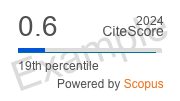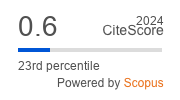Clinical study protocol on assessment of quality of medical care and clinical prognosis in patients who underwent myocardial revascularization accounting modifiable risk factors
https://doi.org/10.29001/2393-11655-2024-838
Abstract
Introduction. Every year in Russia, the number of people who have undergone cardiac surgery exceeds 600 thousand. Among them, anemia occurs in 30-70% of cases, and cognitive dysfunction is noted in 20–80% of cases. Anemia increases the risk of death 4-fold within a year, 5-fold the risk of stent thrombosis, 1.3–fold the risk of recurrence of acute coronary syndrome and 2-fold the risk of bleeding, worsens the quality of life, cognitive status and compliance. Unresolved problems of managing medical care for specialized patients are associated with insufficient coupling of components of clinical and sociopsychological interaction, taking into account modifiable risk factors, and irrational use of limited industry resources distributed according to the quota mechanism. Patient-centered digital systems contribute to improving the quality of life of patients, optimizing the use of healthcare resources.
Aim: To evaluate the parameters of the quality of medical care and clinical prognosis in patients who underwent myocardial revascularization, taking into account an expanded range of modifiable risk factors, including anemia, cognitive dysfunction and depression, using a developed digital intelligent data collection system.
Material and Methods. A prospective cohort study of 300 adult patients who underwent myocardial revascularization is planned for 12 months in 3 groups (depending on the consent and technical feasibility of using a digital information system (CIS): 1 group will undergo questionnaires and cognitive behavioral training online through CIS; 2 group will undergo only questionnaires through CIS; 3 group will not use CIS. There are 2 face-to-face visits to the doctor (6 and 12 months), at which the following groups of endpoints will be evaluated: clinical outcomes; parameters of the quality of medical care and rehabilitation; patient-reported experience indicator (PREM). Validated and authored self-questionnaires will be used.
Keywords
About the Authors
T. Yu. KalyutaРоссия
Tatyana Yu. Kalyuta, Cand. Sci. (Med.), Director of the Scientific and Educational Center for Clinical and Biomedical Research,
112, Bolshaya Kazachya str., Saratov, 410012
A. S. Fedonnikov
Россия
Alexander S. Fedonnikov, Dr. Sci. (Med.), Director of the Institute of Public Health, Public Health and Humanitarian Problems of Medicine; Vice-Rector for Research,
112, Bolshaya Kazachya str., Saratov, 410012
References
1. Saygitov R.T., Chuloc A.A. Cardiovascular diseases in the context of Russia’s long-term socio-economic development priorities. Annals of the Russian Academy of Medical Sciences. 2015;70(3):286–299. (In Russ.). DOI: 10.15690/vramn.v70i3.1324.
2. LaPar D.J., Hawkins R.B., McMurry T.L., Isbell J.M., Rich J.B., Speir A.M. et al. Preoperative anemia versus blood transfusion: Which is the culprit for worse outcomes in cardiac surgery? J. Thorac. Cardiovasc. Surg. 2018;156(1):66–74. DOI: 10.1016/j.jtcvs.2018.03.109.
3. Williams M.L., He X., Rankin J.S., Slaughter M.S., Gammie J.S. Preoperative hematocrit is a powerful predictor of adverse outcomes in coronary artery bypass graft surgery: a report from the Society of Thoracic Surgeons Adult Cardiac Surgery Database. Ann. Thorac. Surg. 2013;96(5):1628–1634. DOI: 10.1016/j.athoracsur.2013.06.030
4. Davidsen L., Kragholm K.H., Aldahl M., Polcwiartek C., Torp-Pedersen C., Soegaard P. et al. Long-term impact of baseline anaemia on clinical outcomes following percutaneous coronary intervention in stable angina. Open Heart. 2020;7(2):e001319. DOI: 10.1136/openhrt-2020-001319.
5. Kalyuta T.Yu., Glushakova V.D., Glushakov I. A., Emelyanova I.P., Posnenkova O.M. Anemia and acute coronary syndromes: Epidemiology, etiology, prognostic value and treatment. Challenges in modern medicine. 2022;45(4):325–342. (In Russ.). DOI: 10.52575/2687-0940-2022-45-4-325-342.
6. Stucchi M., Cantoni S., Piccinelli E., Savonitto S., Morici N. Anemia and acute coronary syndrome: current perspectives. Vasc. Health. Risk. Manag. 2018.14:109–118. DOI: 10.2147/VHRM.S140951.
7. Drapkina O.M., Martynov A.I., Baida A.P., Balan V.E., Baranov I.I., Vlasova E.E. et al. Resolution of the expert council “Relevant issues of iron deficiency in the Russian Federation”. Cardiovascular Therapy and Prevention. 2020;19(5):2700. (In Russ.). DOI: 10.15829/1728-8800-2020-2700.
8. Fedonnikov A.S., Andriyanova E.A. Risks of trust in the institute of medicine in conditions of digital health: Theoretical analysis and management practice. Saratov Journal of Medical Scientific Research. 2020;16(1):94–98. (In Russ.). URL: https://ssmj.ru/system/files/archive/2020/2020_01_094-098.pdf (03.10.2024).
9. Gulieva I.F., Ryumina E.V., Guliev Ya.I. Healthcare Information Systems: Costs and Benefits. Vrach i informacionnye tekhnologii. 2009;3:4–16. (In Russ.).
10. Aleksandrova E.A., Habibullina A.R., Aistov A.V., Garipova F.G., Gerri K.D., Davitadze A.P. et al. Rossijskie populyacionnye pokazateli kachestva zhizni, svyazannogo so zdorov’em, rasschitannye s ispol’zovaniem oprosnika EQ-5D-3L. Sibirskij nauchnyj medicinskij zhurnal. 2020;40(3):99–107. (In Russ.). DOI: 10.15372/SSMJ20200314.
11. Lawton M.P., Brody E.M. Assessment of older people: self-maintaining and instrumental activities of daily living. Gerontologist. 1969;9(3):179– 186.
12. Wijeysundera D.N., Pearse R.M., Shulman M.A., Abbott T.E.F., Torres E., Ambosta A. et al. Assessment of functional capacity before major non-cardiac surgery: An international, prospective cohort study. Lancet. 2018;391(10140):2631–2640. DOI: 10.1016/S0140-6736(18)31131-0.
13. Garanin A.A., Rubanenko A.O., Trusov Yu.A. development of an electronic assistant for remote estimation of adherence to treatment with Morisky-Green questionnaire. Modern problems of science and education. 2024;2:7–7. (In Russ.). DOI: 10.17513/spno.33302.
14. Nikolaev N.A., Martynov A.I., Skirdenko Yu.P., Anisimov V.N., Vasil’eva I.A., Vinogradov O.I. et al. Upravlenie lecheniem na osnove priverzhennosti. Soglasitel’nyj dokument – Mezhdisciplinarnye rekomendacii RNMOT, NOGR, NATG, ODN, GORAN, ROO, ROF. Consilium-Medicum. 2020;5:9–18. (In Russ.).
15. Zung W.W., Richards C.B., Short M.J. Self-rating depression scale in an outpatient clinic. Further validation of the SDS. Archives of general psychiatry. 1965:13(6):508–515. DOI: 10.1001/archpsyc.1965.01730060026004.
16. Bikbulatova L.F., Kutlubaev M.A., Ahmadeev L.R. Fatique asseaament scele: translation into Russian, adaptation and assessment of psychometric properties among in-patiens of neurology and general medicine wards. Medicinskij vestnik Bashkortostana. 2012;7(1):37–42. (In Russ.).
17. Kozlova T.V., Taratuta T.V. Vozmozhnosti optimizacii antikoagulyantnoj terapii Varfarinom. RMZh. 2008;11:1532. (In Russ.). URL: https://www.rmj.ru/articles/kardiologiya/Vozmoghnosti_optimizacii_antikoagulyantnoy_terapii_Varfarinom/?utm_source=google.com&utm_medium=organic&utm_campaign=google.com&utm_referrer=google.com (03.10.2024).
18. Uthoff H., Staub D., Socrate T., Meyerhans A., Bundi B., Schmid H.P. et al. PROCAM-, FRAMINGHAM-, SCORE- and SMART-risk score for predicting cardiovascular morbidity and mortality in patients with overt atherosclerosis. VASA. 2010;39(4):325–333. DOI: 10.1024/0301-1526/a000057.
19. Novoderezhkina E.A., Goldina T.A. Real world evidence studies: problems of terminology and classification. Medical Technologies. Assessment and Choice. 2023;(1):50–62. (In Russ.). DOI: 10.17116/medtech20234501150.
Review
For citations:
Kalyuta T.Yu., Fedonnikov A.S. Clinical study protocol on assessment of quality of medical care and clinical prognosis in patients who underwent myocardial revascularization accounting modifiable risk factors. Siberian Journal of Clinical and Experimental Medicine. 2024;39(4):150-161. (In Russ.) https://doi.org/10.29001/2393-11655-2024-838
JATS XML





.png)





























